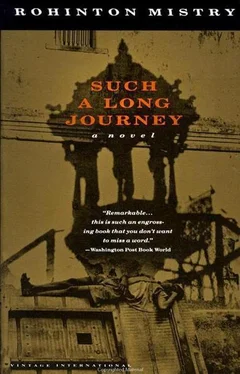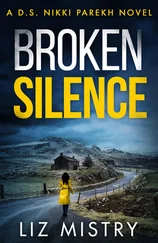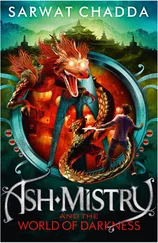‘GustadGustadchickenrace. GustadGustadchickenranfastfast. IcaughtIcaughtGustad.’ Tehmul proudly displayed the bird by its legs.
‘Very good, Tehmul. Well done!’ said Gustad, his practised ear sorting out the spate of words. Tehmul’s cascading utterances were always bereft of commas, exclamation marks, semicolons, question marks: all swept away without the slightest chance of survival. The verbal velocity only allowed for the use of the full stop. And it was not really a full stop the way Tehmul used it; rather, a minimal halt anywhere he chose to re-oxygenate his lungs.
‘GustadGustadrunningrace. Fastfastchickenfirst.’ He grinned and pulled its tail.
‘No, no, Tehmul. Race is over now.’ He took the chicken and handed it to the butcher waiting, knife in hand. Tehmul clutched his own throat, performed a slitting gesture and emitted a terrified squawk. Gustad could not help laughing. Encouraged, Tehmul squawked again.
Miss Kutpitia had watched the chase from her window upstairs. She stuck her head out and applauded: ‘ Sabaash, Tehmul, sabaash ! Now we will get you a job as the chicken-catcher of Khodadad Building. Now you are not only the rat-catcher, you are rat-and chicken-catcher.’ Shaking with what might have been silent mirth, she withdrew her head and shut the window.
Tehmul did not actually catch the rats, he merely got rid of the ones caught by the tenants of Khodadad Building. The Pest Control Department of the municipal ward office offered twenty-five paise for every rat presented to it, dead or alive, as part of its campaign to encourage all-out war against the rodent menace. So Tehmul earned a little money this way, collecting and delivering rats trapped in his neighbours’ wood-and-wire cages. Those who were squeamish gave the cages to Tehmul with the rats still alive, the job to be completed by the municipality. Death by drowning was the official policy. The cages were immersed in a tank and withdrawn after a suitable interval. The corpses were thrown on a heap for disposal, the empty cages returned with the appropriate sum of money.
But when his brother was out of town, Tehmul did not convey the live rats directly to the municipality. He first brought them home with a desire to entertain them in the municipal manner, to teach them to swim and dive. A bucket of water was filled and the rats ducked one by one. He pulled them out before the end, gasping and suffocating, and kept on till he was bored with the game, or a miscalculation drowned the rats.
Sometimes, for variety, he boiled a large kettle of water and poured it over the rats, emulating the neighbours who were brave enough to exterminate their own trappings. But unlike them, he poured the boiling water a little at a time. As the rats squealed and writhed in agony, he watched their reactions with great interest, particularly their tails, proud of the pretty colours he could bestow on them. He giggled to himself as they turned from grey to pink, and then red. If the scalding did not kill them before he ran out of boiling water, he dropped them in the bucket.
One day, Tehmul’s secret was discovered. No one seriously censured him for it. The neighbours agreed, however, never again to hand over a live rat to Tehmul.
But perhaps he understood more than people assumed. When Miss Kutpitia mentioned rat-catcher his grin disappeared and his face clouded shamefully. ‘Gustadbigbigfatrats. Municipalrats. GustadGustaddrowningswimmingratsdivingrats. Chickenranbigknife.’
‘Yes,’ said Gustad, ‘OK.’ He had never quite decided on the best way of conversing with Tehmul. He invariably found himself speaking faster and faster if he was not careful. It was safest to use nods and gestures, combined with monosyllabic responses.
Tehmul followed him to the flat. He grinned and waved goodbye. Dilnavaz, Roshan and the boys were waiting by the door. ‘The string was untied from the chicken’s leg,’ said Gustad. ‘How that happened is what I am wondering.’ He looked meaningfully at them. The butcher returned to the kitchen, the bird firmly in his grasp this time, and Roshan’s eyes started to fill. ‘Yes,’ said Gustad sternly, ‘I would like to know very much how. Expensive chicken I buy, to celebrate birthday and IIT, then the string is untied. What kind of thanks is that?’
From the kitchen came the tell-tale screech. The butcher emerged, wiping his knife on a rag. ‘Good chicken, seth, lots of meat.’ He left with a salaam in Gustad’s general direction.
Roshan burst into sobs, and Gustad abandoned his line of questioning. All four looked at him accusingly, then Dilnavaz went to the kitchen.
Two crows were peering curiously through the wire mesh of the window. The limp mass of feathers and flesh on the stone parapet beside the tap held their attention. When she entered, they cawed frantically and spread their wings, hesitating for a moment, then flew away.
Just hours before the dinner party, Miss Kutpitia excused herself from the invitation Dilnavaz had extended against Gustad’s express orders. Miss Kutpitia explained that when she sat down to breakfast that morning, at the table’s very centre was a lizard, motionless, staring insolently, flicking its tongue. If that wasn’t bad enough, when she wrenched her leather sapaat from her left foot and thwacked the lizard dead, its tail broke off, and continued to wriggle and dance on the table top for at least five minutes. That, said Miss Kutpitia, was a definite omen. She was not going to step outside her home for the next twenty-four hours.
The news had Gustad laughing uproariously, till Dilnavaz threatened to turn off the stove and put her spoon down permanently. ‘I will see where your laughter goes when your silly Dinshawji arrives and the chicken is still uncooked.’
‘Sorry, sorry,’ he said, struggling to keep a straight face. ‘I was just imagining the lizard sticking its tongue out at Kutpitia.’ He tried to get busy and help in the evening’s preparations. ‘Where’s the sev-ganthia and monkey nuts? To serve with drinks?’
‘I am walking around with them on the top of my head!’ She finished stirring something on the stove and dropped the spoon with a loud clatter. ‘In the jars, where else?’
‘Don’t get upset, Dilnoo-darling. Dinshawji is a very nice fellow. Just resumed work after his sickness, and still looking fikko-fuchuk, white as a ghost. He needs our company, and some of your tasty cooking.’ The fragrance of basmati rice filled the kitchen as she opened the pot and squeezed a grain between thumb and finger. She slammed shut the lid, no fonder of Gustad’s friend.
Dinshawji had joined the bank six years before Gustad. That gave him thirty unbroken years of service, he often said, proudly or complainingly, whatever the situation called for. He was older than Gustad, but it did not preclude the fellowship that had grown between them. It was the sort of bond peculiar to such institutions, nurtured from strength to strength by the dryness and mustiness native to the business of banks.
Gustad found the two jars and emptied the snacks into small bowls before noticing that one was chipped, the other had a crack limned by light brown residues. Never mind, no fuss or formalities needed for good old Dinshawji. Now for the drinks.
There was a little rum in the dark brown bottle: Hercules XXX. Major Bilimoria’s final gift, shortly before he disappeared. Gustad debated whether to bring out the bottle. He held it up again, tilted it, trying to estimate. Almost two pegs. Would do for Dinshawji — he could offer him a choice between it and Golden Eagle beer. There were three tall bottles in the icebox.
Читать дальше












